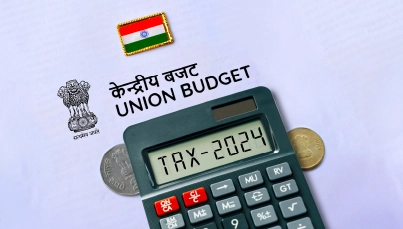Swiss want gold bars, not chocolate!
Posted On Wednesday, Oct 22, 2014
India is a country at stark contrast to Switzerland. We are not talking about the obvious reference to development, or who makes better chocolate, but in terms of how the two nations exhibit democracy.
India is the largest democracy in the world, Switzerland nowhere near in terms of size; but how vibrant the democracy is, needs to be seen...
In India, people are discouraged from opting for their preferred investment i.e. Gold by imposing tariffs and restrictions on imports of gold. Whereas at the other extreme is Switzerland where people not only have a right to choose where they can park their saving but also challenge the way the government runs its finances and what should make up the government reserves! Yes, I am talking about the Swiss Gold Initiative where a 100,000 people have signed a petition making way for a referendum on gold related policies, on which people will cast their decisions.
The referendum has arisen through a popular initiative called `Save our Swiss Gold.` In Switzerland, citizens can propose changes to the Swiss constitution through a mechanism called a `popular initiative`, even if parliament is against the proposal. The `Save our Swiss Gold` initiative is set to highlight the important issues of sovereign gold reserves and who has possession and controls them. On a broader scale, it may lead to an important debate about each country’s national patrimony and their gold reserves.
The Referendum
On the ballot is a measure to prohibit the country`s central bank, the Swiss National Bank (SNB) from further gold sales, to repatriate gold owned by the government but held in different countries back to Switzerland, and to mandate that gold make up at least 20 percent of the SNB`s assets.
What`s driving the cause?
Switzerland has, for hundreds of years, been a bastion of sound monetary policy and low inflation. But this has gradually changed in the last 100 years since the creation of the Fed in the US and especially during the past 15 years when the Swiss government quietly removed the 40% gold backing from the revised Federal Constitution which was adopted by popular vote in 1999.
The Swiss Franc from having been a strong currency is now in the process of being slowly destroyed by the recent policies of the Swiss National Bank. Since 2008 the SNB`s balance sheet has expanded 5 times from CHF 100 Billion to CHF 500 Billion. So Switzerland has printed around 400 Billion Swiss Francs in the last 6 years in order to hold its currency down against the Euro and other currencies. The SNB in recent years established a currency peg, with 1.2 Swiss francs equal to one euro. The effects of this pegging have already manifested itself in the form of a growing real estate bubble, as housing prices have risen significantly. To tie the Swiss Franc to a weak currency like the Euro and a very weak economic area like the Eurozone is a recipe for disaster. To align your country and its monetary policies to a failed political and economic experiment can only lead to failure..
The Swiss referendum is driven by an undercurrent of dissatisfaction with the conduct not only of Swiss monetary policy, but also of Swiss banking policy. It is an attempt to bring more oversight and accountability to the country`s central bank, undertaken by none other than the common man.
The policy rhetoric continues...
The fact the referendum is being held demonstrates that there is already support for this idea. At first the government and central bank rejected the idea of increasing the nation`s gold reserves; however, in April of 2013, the ultra-conservative Swiss People`s party, managed to collect more than 100,000 to force the government to hold a referendum.
The SNB sold 250 tonnes of gold throughout 2007 and 2008, arousing public criticism at the time. The central bank has since said it won`t sell any more gold holdings, but it is wary of any rules that might curb its freedom to maneuver in shaping monetary policy. The Swiss National Bank and the Swiss government are against the proposal but were forced last year, in reaction to the popular campaign, to reveal the storage locations of Swiss gold. In April 2013, Thomas Jordan, SNB President, confirmed that 70% of Switzerland’s gold is in Switzerland, 20% is at the Bank of England, and 10% is stored with the Bank of Canada, and that this mix of holdings had been in place for more than a decade.
Wish for a resounding Yes vote...
The gold referendum, if it is successful, would be a very forceful rejection to the current monetary and banking policies in Switzerland, and those responsible for them. On a broader scale, the policies and policy makers of other central banks worldwide would have to take heed.
Switzerland now has the opportunity to be the first country in the world with official partial gold backing of its currency. A currency backed by gold means the government and the central bank cannot manipulate the currency at will and print worthless pieces of paper that they call money. This would stabilise the real value or purchasing power of the Swiss Franc. A currency with stable purchasing power leads to stable prices and promotes savings and investment rather than spending and credit. Officially Switzerland, like most countries, has a low inflation rate but for the average person, consumer prices in the shops for food and other necessities continue to rise. A “YES” vote for the Gold Initiative would prevent Switzerland’s economy and currency to reach the same destiny as all paper currencies in their race to the bottom.
Taking on the gold market
Currently, according to data compiled by the World Gold Council, Switzerland holds 1,039.99 metric tons of gold making up 7.9% of its total reserves. If the referendum passes the Swiss National Bank would have to buy about 1,593.94 tons of gold over the next three years to bring gold equal to 20% of its reserves. That’s a lot of buying given the annual gold production is about a tad more than 3,000 tonnes.
Switzerland now has the unique opportunity to return to a sound financial system that has been their trademark for centuries. We will have to wait until end of November to know the final outcome. We also hope that by the time, India also allows its citizens to pick their preferred choice of investment without any undue restrictions or levies. Let both the countries exhibit true democracy!
Data Source: Bloomberg, World Gold Council
Statutory Details and Risk Factors:
The views expressed here in this article are for general information and reading purpose only. The views expressed here do not constitute any guidelines or recommendation on any course of action to be followed by the reader. The views are based on the publicly available information, internally developed data and other sources believed to be reliable. The views are meant for general reading purpose only and are not meant to serve as a professional guide / investment advice / intended to be an offer or solicitation for the purchase or sale of any financial product or instrument or mutual fund units for the readers. Whilst no action has been solicited based upon the information provided herein, due care has been taken to ensure that the facts are accurate and opinions given fair and reasonable. Recipients of this information should rely on information/data arising out of their own investigations. Readers are advised to seek independent professional advice and arrive at an informed investment decision before making any investments. None of The Sponsor, The Investment Manager, The Trustee, their respective directors, employees, affiliates or representatives shall be liable for any direct, indirect, special, incidental, consequential, punitive or exemplary damages, including lost profits arising in any way from the information contained in this document. Please visit – www.quantumamc.com/disclaimer to read scheme specific risk factors.
Related Posts
-

Navigating the New Taxation Rules for Quantum Investors
Posted On Thursday, Jul 25, 2024
The Union Budget announced on 24 July, 2024 brought in controversial changes such as removal of indexation benefits and changes in tax rates.
Read More -

Ballots Cast, Budgets Await: Market Reactions in the Post-Election Economy
Posted On Thursday, Jul 18, 2024
As India emerges from a dynamic election cycle, the investing landscape finds itself at a crossroads. While the newly formed Coalition government settles in, pre-budget expectations are shaping market sentiment.
Read More -

The Governance Feature in this ESG Fund
Posted On Friday, Jul 12, 2024
In the realm of sustainable investing, the governance aspect of an ESG (Environment, Social, and Governance) fund holds paramount importance.
Read More
Get In Touch
Take small steps in your financial planning to achieve big dreams! Start your investment journey today!



